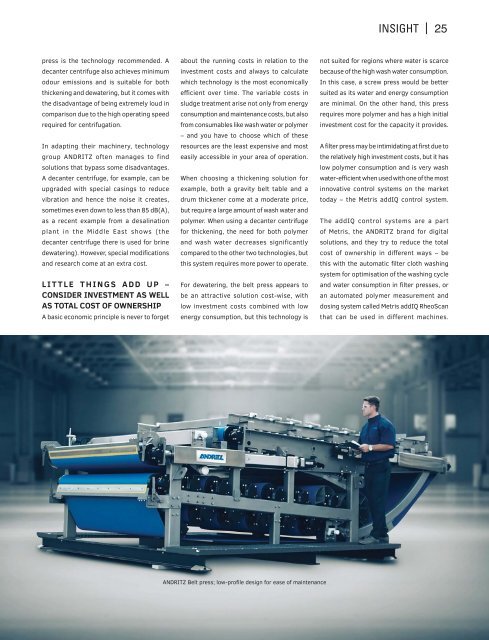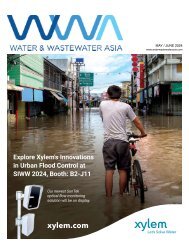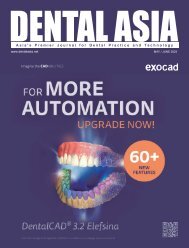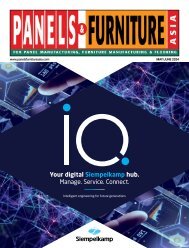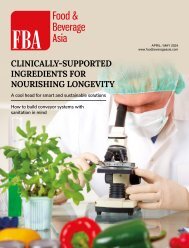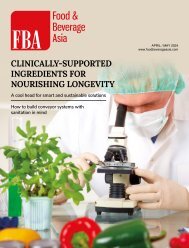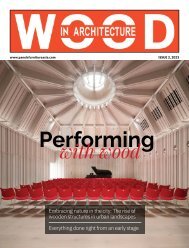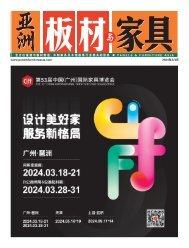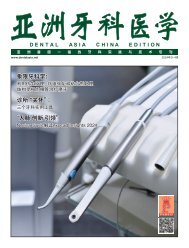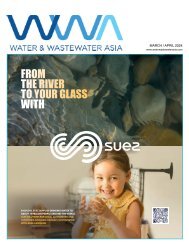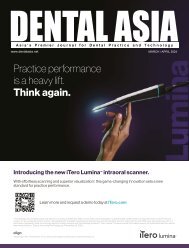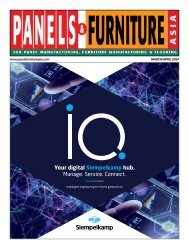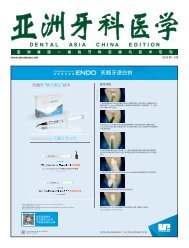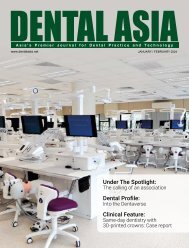Water & Wastewater Asia September/October 2019
Water & Wastewater Asia is an expert source of industry information, cementing its position as an indispensable tool for trade professionals in the water and wastewater industry. As the most reliable publication in the region, industry experts turn this premium journal for credible journalism and exclusive insight provided by fellow industry professionals. Water & Wastewater Asia incorporates the official newsletter of the Singapore Water Association (SWA).
Water & Wastewater Asia is an expert source of industry information, cementing its position as an indispensable tool for trade professionals in the water and wastewater industry. As the most reliable publication in the region, industry experts turn this premium journal for credible journalism and exclusive insight provided by fellow industry professionals. Water & Wastewater Asia incorporates the official newsletter of the Singapore Water Association (SWA).
- No tags were found...
You also want an ePaper? Increase the reach of your titles
YUMPU automatically turns print PDFs into web optimized ePapers that Google loves.
INSIGHT | 25<br />
press is the technology recommended. A<br />
decanter centrifuge also achieves minimum<br />
odour emissions and is suitable for both<br />
thickening and dewatering, but it comes with<br />
the disadvantage of being extremely loud in<br />
comparison due to the high operating speed<br />
required for centrifugation.<br />
In adapting their machinery, technology<br />
group ANDRITZ often manages to find<br />
solutions that bypass some disadvantages.<br />
A decanter centrifuge, for example, can be<br />
upgraded with special casings to reduce<br />
vibration and hence the noise it creates,<br />
sometimes even down to less than 85 dB(A),<br />
as a recent example from a desalination<br />
plant in the Middle East shows (the<br />
decanter centrifuge there is used for brine<br />
dewatering). However, special modifications<br />
and research come at an extra cost.<br />
LITTLE THINGS ADD UP –<br />
CONSIDER INVESTMENT AS WELL<br />
AS TOTAL COST OF OWNERSHIP<br />
A basic economic principle is never to forget<br />
about the running costs in relation to the<br />
investment costs and always to calculate<br />
which technology is the most economically<br />
efficient over time. The variable costs in<br />
sludge treatment arise not only from energy<br />
consumption and maintenance costs, but also<br />
from consumables like wash water or polymer<br />
– and you have to choose which of these<br />
resources are the least expensive and most<br />
easily accessible in your area of operation.<br />
When choosing a thickening solution for<br />
example, both a gravity belt table and a<br />
drum thickener come at a moderate price,<br />
but require a large amount of wash water and<br />
polymer. When using a decanter centrifuge<br />
for thickening, the need for both polymer<br />
and wash water decreases significantly<br />
compared to the other two technologies, but<br />
this system requires more power to operate.<br />
For dewatering, the belt press appears to<br />
be an attractive solution cost-wise, with<br />
low investment costs combined with low<br />
energy consumption, but this technology is<br />
not suited for regions where water is scarce<br />
because of the high wash water consumption.<br />
In this case, a screw press would be better<br />
suited as its water and energy consumption<br />
are minimal. On the other hand, this press<br />
requires more polymer and has a high initial<br />
investment cost for the capacity it provides.<br />
A filter press may be intimidating at first due to<br />
the relatively high investment costs, but it has<br />
low polymer consumption and is very wash<br />
water-efficient when used with one of the most<br />
innovative control systems on the market<br />
today – the Metris addIQ control system.<br />
The addIQ control systems are a part<br />
of Metris, the ANDRITZ brand for digital<br />
solutions, and they try to reduce the total<br />
cost of ownership in different ways – be<br />
this with the automatic filter cloth washing<br />
system for optimisation of the washing cycle<br />
and water consumption in filter presses, or<br />
an automated polymer measurement and<br />
dosing system called Metris addIQ RheoScan<br />
that can be used in different machines.<br />
ANDRITZ Belt press; low-profile design for ease of maintenance


